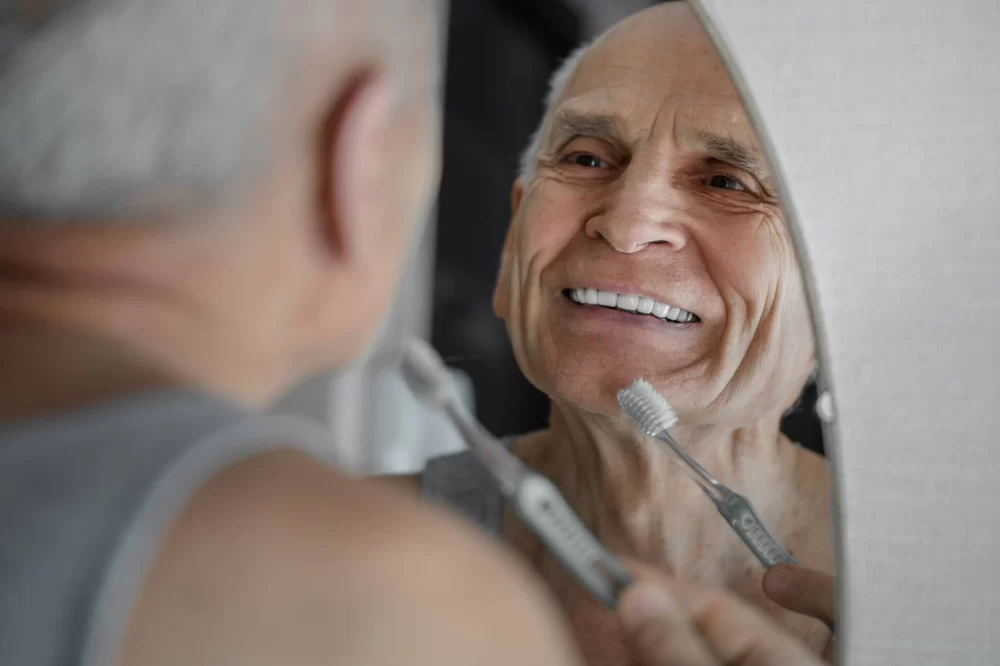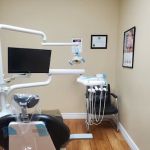
How Dental Care Impacts the Mental Health of Elderly Patients
As we age, our health needs evolve, and the importance of dental care for the elderly is becoming more apparent than ever. Often overlooked, oral health has a profound impact on mental well-being, especially in seniors. I’ve come to realize that dental care is not just about maintaining a smile, but it’s about improving the overall quality of life, including mental health. For elderly patients, regular visits to the dentist can have a significant effect on both physical and psychological well-being.
The Link Between Oral Health and Mental Health
It may surprise you to know that oral health can influence mental health, particularly in older adults. I’ve spoken to several elderly individuals who shared how their dental issues affected their confidence, mood, and even social interactions. Poor oral health can cause physical pain, which often leads to mental distress. Seniors with missing teeth or untreated gum disease may feel self-conscious, avoiding social situations or even becoming depressed.
For many elderly patients, the fear of dental procedures can also play a significant role in their mental health. A fear of the dentist or discomfort from prior experiences can create anxiety that affects their overall outlook. Furthermore, conditions like dry mouth, often associated with aging or medications, can make eating and speaking difficult, which in turn reduces social interaction and can lead to feelings of isolation and sadness.
How Dental Care Can Alleviate Mental Stress in Seniors
On the flip side, I’ve noticed that seniors who maintain regular dental visits report improved self-esteem and a more positive outlook. Dental care is not just about preventing tooth loss, it’s about preventing mental health struggles such as depression and social withdrawal. When elderly patients take pride in their dental hygiene and feel confident in their smile, they are more likely to engage with others and maintain a higher quality of life.
In one case, I remember an elderly woman named Margaret, who had been struggling with feelings of loneliness and depression. She had neglected her oral care for years due to fear of the dentist. Eventually, after overcoming her fear and receiving a dental treatment plan, she experienced a noticeable shift in her mental health. She was no longer ashamed of her smile, and this newfound confidence allowed her to reconnect with family and friends, which helped alleviate her depression. Her story is a testament to how a simple dental visit can transform an elderly person’s mental health.
Common Oral Health Issues in Elderly Patients
Elderly patients face a unique set of oral health challenges. Some of the most common issues include tooth decay, gum disease, dry mouth, and tooth loss. These issues not only affect their ability to eat and speak but can also take a toll on their self-esteem and emotional well-being.
For instance, gum disease, or periodontal disease, is prevalent in seniors and can lead to tooth loss if left untreated. Tooth loss can be distressing, leading to difficulties with speaking and eating, and sometimes even feelings of embarrassment or shame. These oral issues can lead seniors to avoid social interactions, which can contribute to isolation and depression.
Dry mouth is another common concern among seniors. Often caused by medications or natural aging processes, dry mouth can lead to difficulty in chewing, swallowing, and speaking. This discomfort can cause stress and frustration, further impacting their mental health.
The Role of Dentists in Supporting Senior Mental Health
The role of a dentist in caring for elderly patients goes beyond routine check-ups. Dentists are instrumental in helping seniors maintain not only their oral health but their mental health too. By identifying and addressing oral health issues early on, dentists can help prevent the onset of more serious physical and mental health complications. Dentists also provide advice on proper oral care techniques that can be easily followed by seniors, helping them feel more in control of their health.
Additionally, some elderly patients require specialized care, such as dentures or implants, to restore their ability to chew and speak comfortably. By providing these restorative services, dentists help seniors regain confidence and a sense of normalcy, contributing to a positive shift in their mental well-being.
Why Regular Dental Visits Are Crucial for Elderly Mental Health
Regular dental check-ups are essential for elderly patients, not only to maintain oral health but also to preserve their mental health. For many seniors, seeing the dentist regularly is an opportunity to maintain a healthy lifestyle, ensuring they are mentally and physically active. Furthermore, consistent visits to the dentist provide an opportunity to address any underlying issues that could be causing stress, pain, or discomfort.
For instance, one elderly gentleman I know had been struggling with chronic oral pain due to untreated dental issues. He had avoided visiting the dentist for years, convinced that he could manage the pain on his own. However, when he finally sought dental help, his pain was alleviated, and he experienced a significant reduction in stress and anxiety. He shared with me how the relief from his dental pain made him feel like a new person, mentally and emotionally.
Practical Tips for Maintaining Oral Health in Older Adults
Maintaining good oral hygiene can be a challenge for many elderly people, but it is not impossible. Here are a few practical tips I’ve found helpful for seniors looking to take better care of their dental health:
- Brush twice a day: Using a soft-bristled toothbrush and fluoride toothpaste helps prevent tooth decay and gum disease. Seniors should brush their teeth gently but thoroughly.
- Floss daily: Flossing helps remove food particles and plaque from between teeth, which can contribute to gum disease and tooth decay.
- Stay hydrated: Drinking plenty of water helps prevent dry mouth, a common issue in older adults.
- Visit the dentist regularly: Routine check-ups every six months are essential for preventing and addressing dental issues early.
- Consider dentures or implants: For those who have lost teeth, dentures or implants can restore confidence and make eating and speaking easier.
By following these simple tips and maintaining regular dental visits, seniors can improve their oral health and, as a result, enhance their mental well-being.
Conclusion
As we age, the importance of dental care cannot be overstated, especially for mental health. A healthy mouth leads to a healthy mind, and for elderly patients, taking care of their teeth and gums can significantly improve their overall quality of life. It’s essential that seniors prioritize their oral health, not only to prevent physical discomfort but also to boost their mental health, social interactions, and confidence. For families and caregivers, encouraging regular dental visits and oral hygiene practices can make a world of difference in an elderly person’s mental well-being.
If you're looking for the best dental care or services tailored to seniors, visit our website at Dentistry Toothtruth for top recommendations on clinics and healthcare providers specializing in elderly dental health.







 Sweet City Smiles5.0 (513 review)
Sweet City Smiles5.0 (513 review) Hillside Family Dentistry4.0 (108 review)
Hillside Family Dentistry4.0 (108 review) Jae Chae DMD4.0 (26 review)
Jae Chae DMD4.0 (26 review) Eastern Dental4.0 (551 review)
Eastern Dental4.0 (551 review) Densley Dental4.0 (260 review)
Densley Dental4.0 (260 review) Arlington Dental Group and Orthodontics4.0 (210 review)
Arlington Dental Group and Orthodontics4.0 (210 review) The Importance of Oral Health Education During Pregnancy for a Healthy Pregnancy
The Importance of Oral Health Education During Pregnancy for a Healthy Pregnancy Best Tips for Brushing Your Teeth Properly for Healthy Gums: Essential Techniques for Oral Health
Best Tips for Brushing Your Teeth Properly for Healthy Gums: Essential Techniques for Oral Health Why Skipping Dental Checkups Can Lead to Bigger Oral Health Problems
Why Skipping Dental Checkups Can Lead to Bigger Oral Health Problems Advantages of Porcelain Dental Restorations
Advantages of Porcelain Dental Restorations How Can Diabetes Cause Tooth and Gum Problems? Preventing and Managing Oral Health Issues
How Can Diabetes Cause Tooth and Gum Problems? Preventing and Managing Oral Health Issues Healthy Habits for Promoting Good Oral Health and Hygiene: Tips for a Healthy Smile
Healthy Habits for Promoting Good Oral Health and Hygiene: Tips for a Healthy Smile